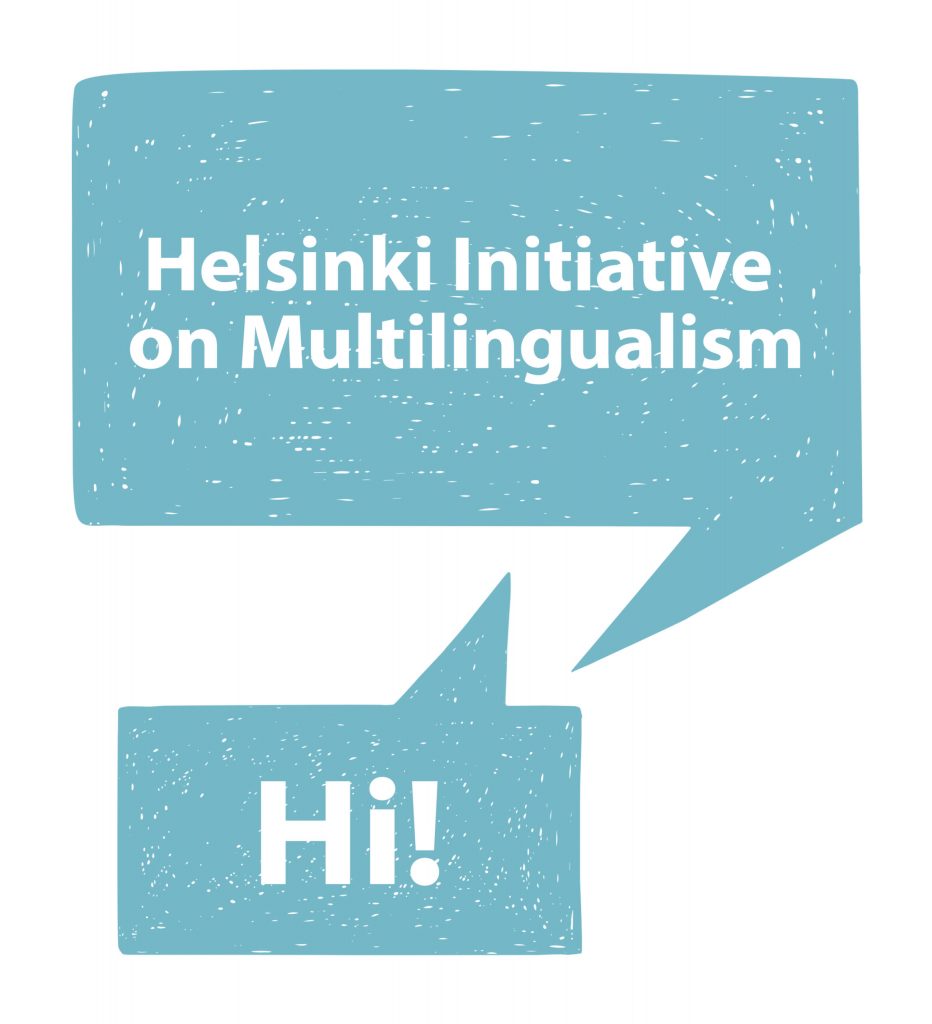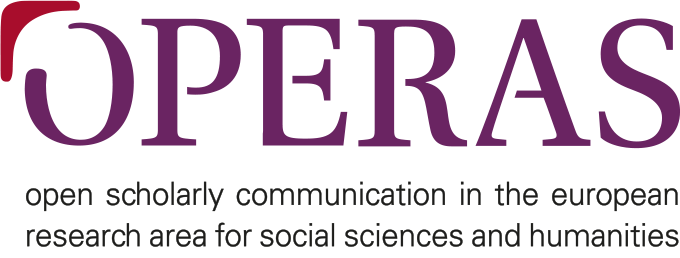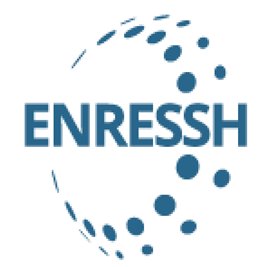The slides and a Preliminary Report (OPERAS-D) from the workshop can be found on Zenodo:
This workshop on multilingualism was an online satellite event of the OASPA Conference 2020 (#OASPA2020, #OASPA2020multilingualism).
- Date: Monday, September 21
- Time (CET): 10-12 am 1-3 pm (lunch break 12 am-1 pm)
Purpose of the Workshop
This workshop on multilingualism brought publishers, translators, librarians, junior scholars and interested stakeholders together to exchange experiences on multilingualism. Particular attention was being paid to challenges with Open Access in academic publishing and to possible lobbying strategies.
Main Themes
- Balance of localization and globalization: right balance of international and local relevance of research & impact of research
- Translation: translation and translators as “invisible contribution” or recognized in their own right, authority of automated translations
- Open access specific challenges around multilingualism
- Hegemonial challenges around languages:
– linguistic hegemony and dominance in multilingual settings
– minorities and native languages as a cultural trait
– dominance of latin alphabet requirements (aggregators in scientific communication)
– dominance of the concept of universal linguae franca such as English.
Agenda
10.00-10.20: Welcome and introduction by the organizers (Chair: Margo Bargheer)
10.20-10.50: Janne Pölönen & Leena Kaakinen – The Helsinki Initiative on Multilingualism in Scholarly Communication: the Case of Finnish Scholarly Publishers (Chair: Margo Bargheer)
11.00-11.30: Delfim Leão – The Survey “Multilingualism in Scholarly Communication”: a Preliminary Report (OPERAS multilingualism Special Interest Group, OPERAS-P project) (Chair: Pierre Mounier)
11.30-12.00: Emanuel Kulczycki – Multilingual Publishing in the Social Sciences and the Humanities (Chair: Janne Pölönen)
12.00-13.00: Lunch Break
13.00-13.30: Yasushi Ogasaka – Linguistic Tendency of Japanese Research Articles (Chair: Christina Lenz)
13.30-14-00: Suzanne Dumouchel – Managing Multilingualism at a European Scale: the Example of TRIPLE Project(Chair: Ivo Volt)
14.00-14.30: Kathleen Shearer – Fostering Bibliodiversity in Scholarly Communications (Chair: Margo Bargheer)
14.30-15.00: Gimena del Rio Riande – Open as multilingual: Perspectives from Latin America (Chair: Delfim Leão)
15.00.15.15: Take away and possible Action points from the Organisers (Chair: Margo Bargheer)
About the Speakers
Suzanne Dumouchel, PhD in French literature, is a research engineer at the CNRS. She works in the Huma-Num unit, an infrastructure for digital humanities. She leads the European project TRIPLE which aims to develop a platform for data discovery, research projects and researchers in SSH. She is co-coordinator of the European research infrastructure OPERAS, dedicated to open access scholarly communication in the field of SSH. Strongly committed to the Open Science movement and to the promotion of research in SSH, she is involved in the setting up of the EOSC by participating in various working groups.
Email: Suzanne.dumouchel@huma-num.fr
Twitter: @Suzdum
LinkedIn: https://www.linkedin.com/in/suzannedumouchel
Yasushi Ogasaka is Director of Department of R&D for Future Creation which manages one of the funding programs of JST. Before assuming the current position in July 2020, he was Director of Department for Information Infrastructure for nearly five years, where he was responsible for information services such as open-access journal platform J-STAGE. He was also responsible for development and implementation of policy on open access to funded research article and data. Before joining JST in 2009, he was Assistant Professor of Nagoya University, Japan. His research area was high energy astrophysics.
Email: ogasaka@jst.go.jp
Leena Kaakinen has a long experience in academic and non-fiction publishing. She is publishing director of Gaudeamus Publishing (a publishing house for academic and non-fiction literature in Finnish) and publishing director of Helsinki University Press (an Open Access scholarly publisher associated with the University of Helsinki). She is also Chair of Board of the Finnish Association for Scholarly Publishing.
E-mail: pj@tiedekustantajat.fi
Emanuel Kulczycki is an Associate Professor at the Adam Mickiewicz University in Pozna?, Poland where he leads the Scholarly Communication Research Group. He is also a policy advisor for the Ministry of Science and Higher Education in Poland. Since 2018, the chair of ENRESSH (European Network for Research Evaluation in the Social Sciences and the Humanities). He got his PhD (2011) and habilitation (2016) in philosophy.
Email: emek@amu.edu.pl
Twitter: @ekulczycki
Website: emanuelkulczycki.com
Delfim Leão is a full Professor at the Institute of Classical Studies at the University of Coimbra. He is currently Vice-Rector for Culture and Open Science at Coimbra University. His main areas of scientific interest are ancient history, law and political theory of the Greeks, theatrical pragmatics, and the ancient novel. He is a Member of the UNESCO’s Advisory Committee on Open Science.
Email: leo@fl.uc.pt
ORCID: https://orcid.org/0000-0002-8107-9165
Janne Pölönen is the head of planning at the Federation of Finnish Learned Societies. He has training in history, specialising in the ancient Roman law and society research. Pölönen represented Finland in the COST-Action European Network for Research Evaluation in the Social Sciences and the Humanities (ENRESSH), and he is a member of the core-group behind the Helsinki Initiative on Multilingualism in Scholarly Communication (www.helsinki-initiative.org).
Email: janne.polonen@tsv.fi
ORDIC: https://orcid.org/0000-0003-1649-0879
Twitter: @PolonenJanne
Dr. Gimena del Rio Riande is an Associate Researcher at IIBICRIT-CONICET, (Argentina). She holds a MA and Summa Cum Laude PhD in Romance Philology (Universidad Complutense de Madrid). She is the director of the Laboratorio de Humanidades Digitales (CONICET) and co-director of the Master in Digital Humanities (UNED, Spain). She is one of the DOAJ Ambassadors for Latin America, co-director of the Revista de Humanidades Digitales, and editor at Digital Studies/Le champ numerique. She coordinates a Global Classrooms Program for Digital Minimal Editions with Raffaele Viglianti (UMD). She is the president of the Asociación Argentina de Humanidades Digitales, and member of the board of directors at FORCE11, Text Encoding Initiative Consortium, and Pelalgios Network.
Email: gdelrio.riande@gmail.com
Twitter: @gimenadelr
Kathleen Shearer, Kathleen Shearer is the Executive Director of COAR (Confederation of Open Access Repositories), an international association of repository initiatives with a membership of over 150 institutions worldwide from over 40 countries on all 5 continents. COAR’s aim is to enhance the visibility and application of research outputs through a global network of open access repositories based on international collaboration and interoperability. Shearer has been working in the area of open access, open science, scholarly communications, and research data management for over 20 years. She has been the Executive Director of COAR since 2013, and participates in numerous other organizations in Canada and internationally. Most recently in April 2020, Shearer published a paper with colleagues on the need for bibliodiversity in open scholarly communications called Fostering Bibliodiversity in Scholarly Communications: A Call for Action. Shearer is also a Research Associate with the Canadian Association of Research Libraries and was instrumental in launching the Portage Initiative in Canada, a national research data management network.
Twitter: @KathleeShearer
Organizers and Contact Information
- Helsinki Initiative on Multilingualism & The Federation of Finnish Learned Societies: Janne Pölönen janne.polonen@tsv.fi
- Finnish Association for Scholarly Publishing: Leena Kaakinen pj@tiedekustantajat.fi
- ENRESSH (European Network for Research Evaluation in the Social Sciences and the Humanities): Emanuel Kulczycki emanuel@ekulczycki.pl
- OPERAS multilingualism Special Interest Group: Delfim Leão leo@fl.uc.pt; Pierre Mounier pierre.mounier@openedition.org;
- AEUP (Association of European University Presses): info@aeup.eu





